Shanghai youths release pent-up emotions at 'Halloween with Chinese characteristics'
Zaobao correspondent Chen Jing recaps this year's Halloween parade in Shanghai, which saw young people expressing their thoughts on current affairs through their costumes. Will Halloween celebrations be as boisterous next year?
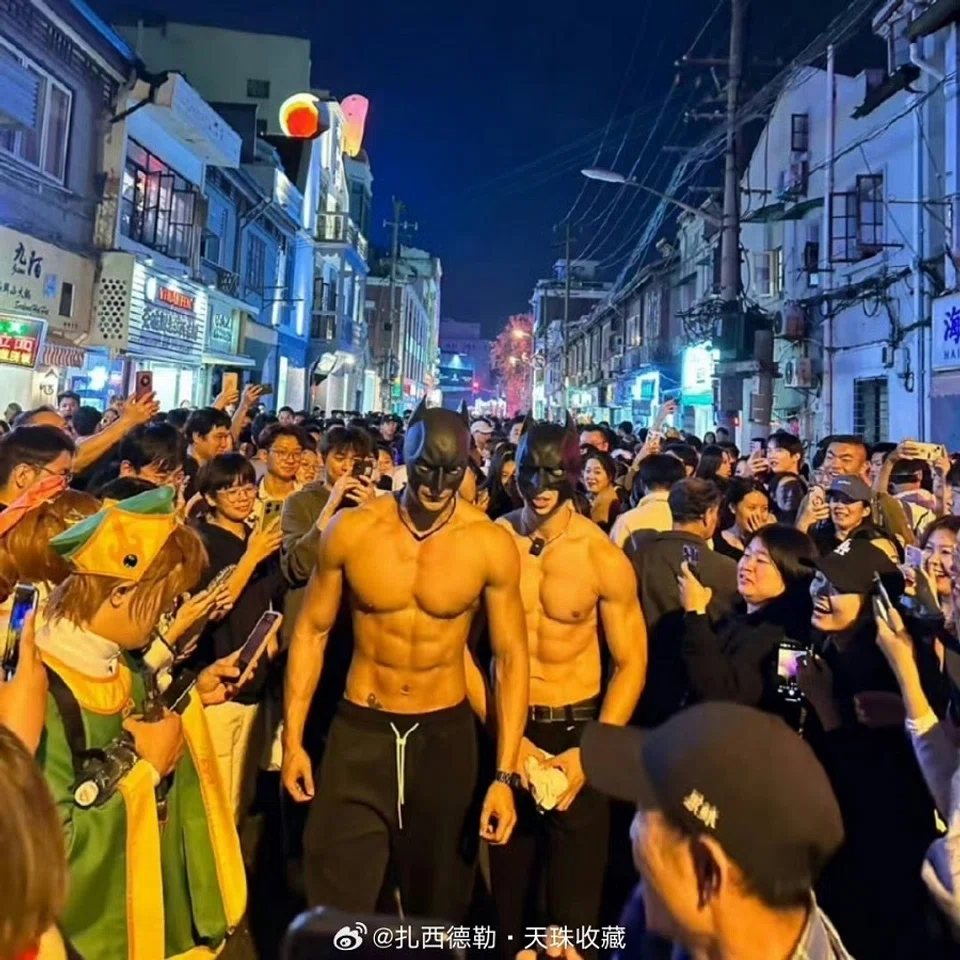
Over the past weekend, this question circulated among my social circle in Shanghai: "Have you been to Julu Road?" (read: Did you join the Halloween parade?)
Known as a trendy "internet celebrity" street, Julu Road, packed with people over the past few days, was the centre of this year's Halloween parade. I too tried to join in the fun, but was soon squeezed out of the crowd.
However, even without going to Julu Road, one could sense a strong Halloween atmosphere on the streets of Shanghai. Pumpkin lights and spider webs hanging on storefronts, and youngsters dressed to the nines for Halloween, caught the attention of passersby.
There were people dressed as China's "Big White" army (大白, anti-epidemic "volunteers" in white uniforms), others who acted as Chinese actor Wu Jing in the movie Wolf Warrior, holding the placard "Anyone who offends China will be killed no matter how far the target is" (虽远必诛)...
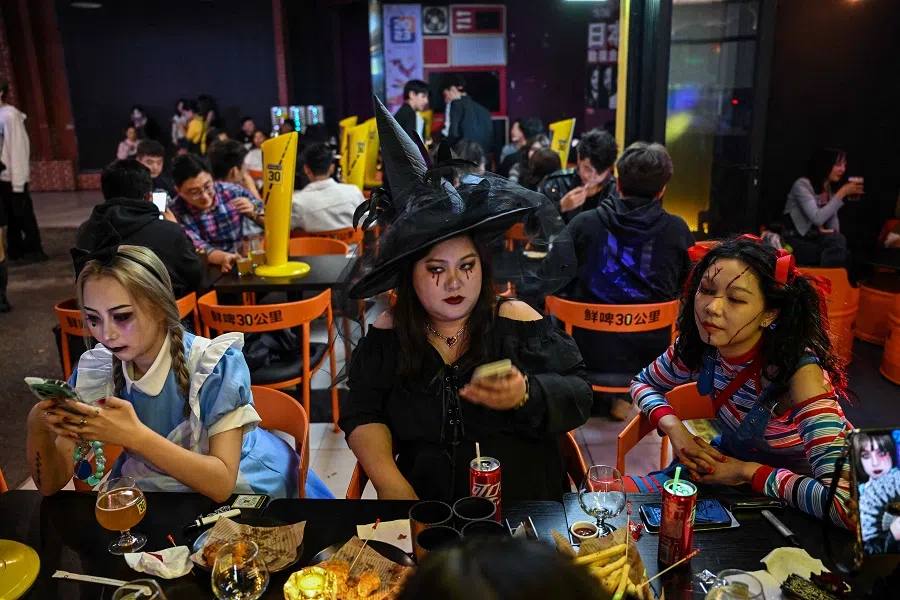
For Shanghai, China's most international city, Halloween, celebrated on 31 October, is nothing new. But this year's Halloween celebrations were particularly outstanding, not only because of the larger crowd, but also because of the flood of amazing costumes.
Costumes with a message
Ghouls and monsters - most commonly seen at Western Halloween celebrations - were not the main characters at Shanghai's Halloween parade, nor were little children carrying baskets asking for sweets the main participants of the parade. Instead, the highlight of the festivities was a party started by young people, and only those familiar with the Chinese context would get the costumes they wore.
There were people dressed as China's "Big White" army (大白, anti-epidemic "volunteers" in white uniforms), others who acted as Chinese actor Wu Jing in the movie Wolf Warrior, holding the placard "Anyone who offends China will be killed no matter how far the target is" (虽远必诛), and yet others who played Chinese writer Lu Xun, holding up signs with the words "Studying medicine cannot save the Chinese" (学医救不了中国人).
Amid the party atmosphere of "dancing with monsters and ghosts", some costumes reeked of politics...
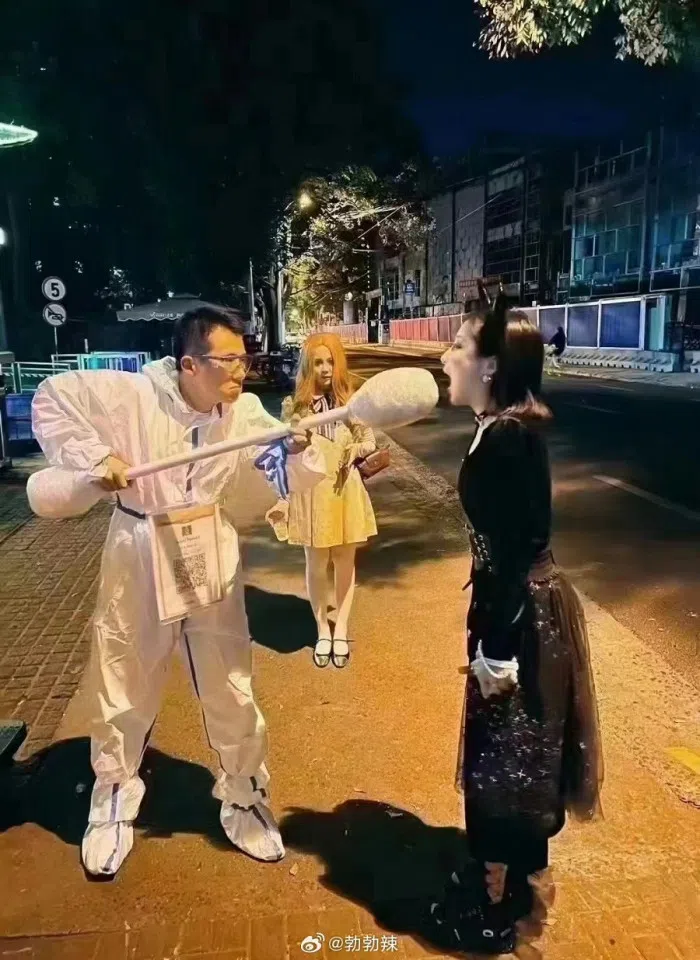
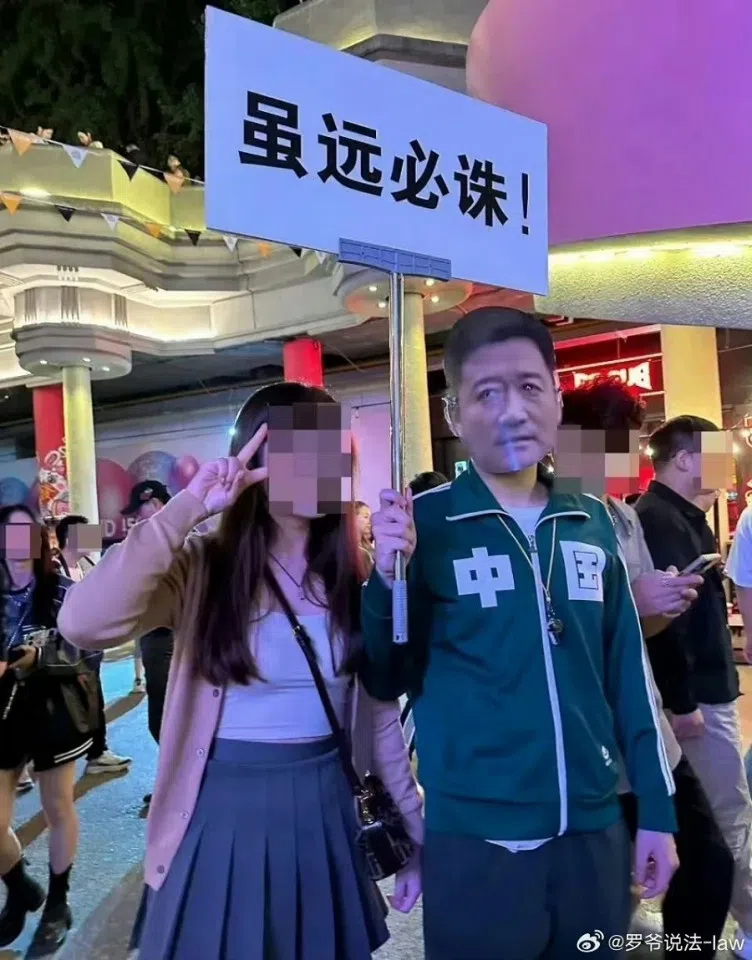
If these characters were recognisable, the following costumes tested people's awareness of Chinese current affairs: the Shanghai Composite Stock Index that fell below 3,000 points; livestreamer Austin Li Jiaqi who retorted "How is this expensive?" in response to netizens' comments that a 79 RMB eyebrow pencil was expensive; and ordinary employees proclaiming: "I'm working in the office on Chinese New Year's Eve."
Amid the party atmosphere of "dancing with monsters and ghosts", some costumes reeked of politics: Cheng Dieyi, a character from the film Farewell My Concubine who was paraded through the streets; youths who stuck blank A4 sheets all over themselves; and even a youth who wore a Red Guard armband yet held up a warning sign that read: "It is forbidden to go against the flow (禁止倒流)."
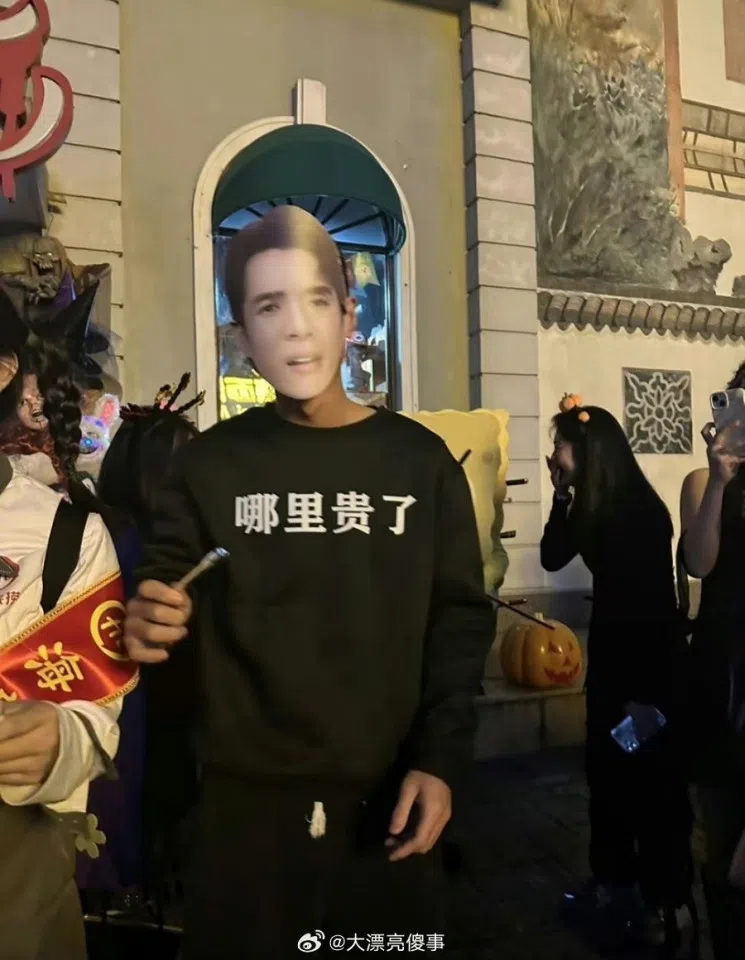
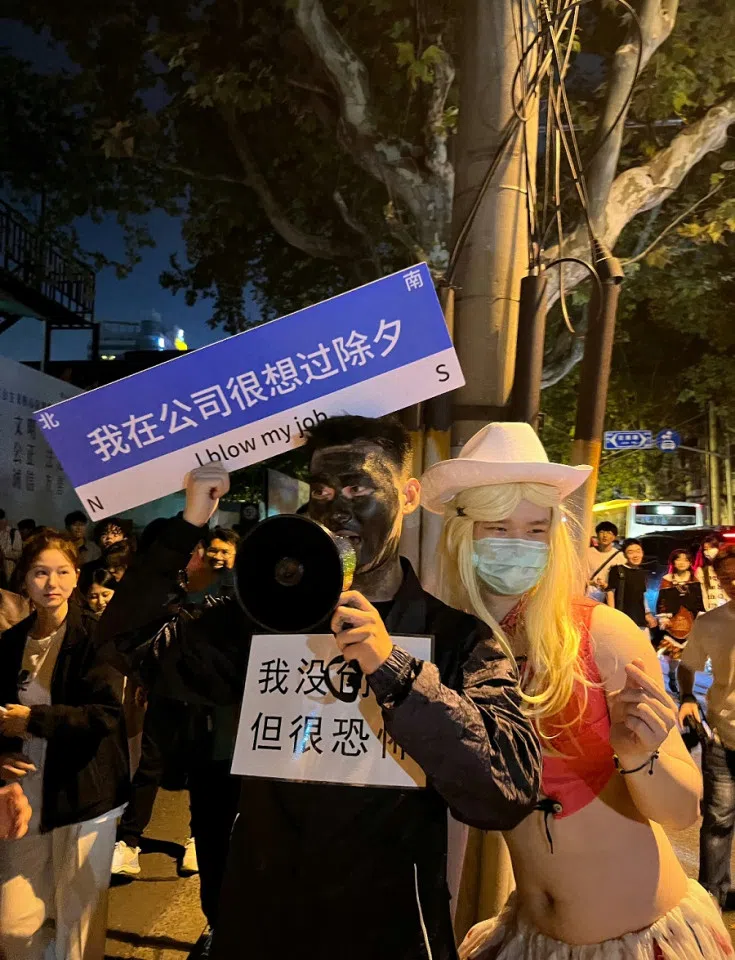
No wonder people said that Shanghai youths were not celebrating "All Saints' Eve" (another name for Halloween) but "All Memes' Day" instead. A netizen even hit the nail on the head and said that this was "Halloween with Chinese characteristics".
Perceived influence of Western culture
Driven by internet culture and backed by social media platforms, Shanghai's Halloween celebrations flooded the Chinese internet for days, again triggering debate over whether Chinese people should celebrate Western festivals.
Detractors criticised Shanghai youths for succumbing to Western cultural influence, and accused them of "not celebrating traditional Chinese festivals and acting like ghosts and monsters instead". Supporters, on the other hand, felt the celebrations showed the tolerance and openness of the Haipai culture (海派, "East Meets West" culture of Shanghai) and fully demonstrated the creativity and vitality of Chinese youths.
...the unprecedented scale of Halloween in Shanghai this year has to do with the pandemic restrictions for the past three years...
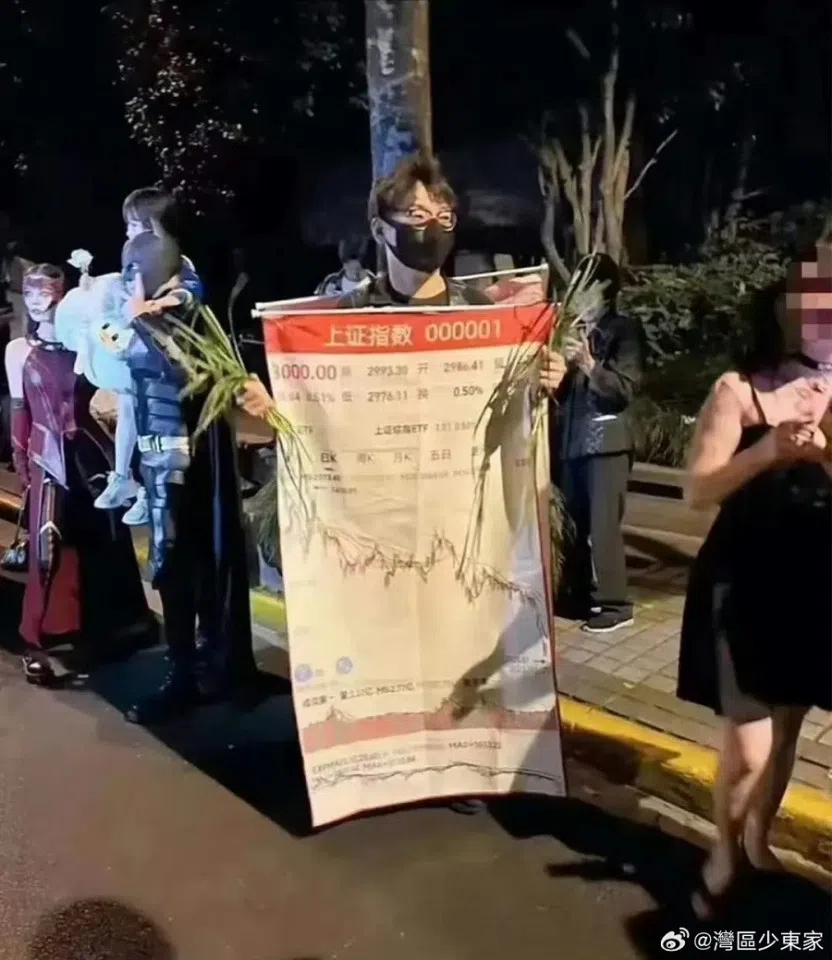
Some "Big Vs" (大V, verified internet personalities) on Weibo felt that "Halloween with Chinese characteristics" made good material for external propaganda, illustrating China's integration with the world. They added that it "fully demonstrates that the Chinese people live freely without restraint".
Lingering effects of the pandemic
However, the unprecedented scale of Halloween in Shanghai this year has to do with the pandemic restrictions for the past three years, as well as the strict lockdown that Shanghai endured last year, as seen in the many "Covid-19 restrictions" themed costumes in the parade.
Some dressed up as testing stations, while others carried giant cotton buds and swabbed dinosaurs' throats, and still others imitated anti-epidemic personnel scolding others for not wearing masks - "Self-quarantine at home for three to five days, and get your residential area to write me a report!" A netizen lamented in a post: "It was like a flashback to a year ago; this is way scarier than any ghosts or demons!"
Pandemic restrictions may have finally been lifted, but the burden on Chinese youths is no lighter. A slow economic revival coupled with a bumper year in the number of graduates has led to fresh graduates worrying about not being able to secure a job, while those who are currently employed are worried about sudden layoffs. This explains why in this year's Halloween parade, many dressed up as "Party B" (of an employment contract) working overtime at their computers with a fraught face, or even "architecture graduates" lining the streets as beggars.
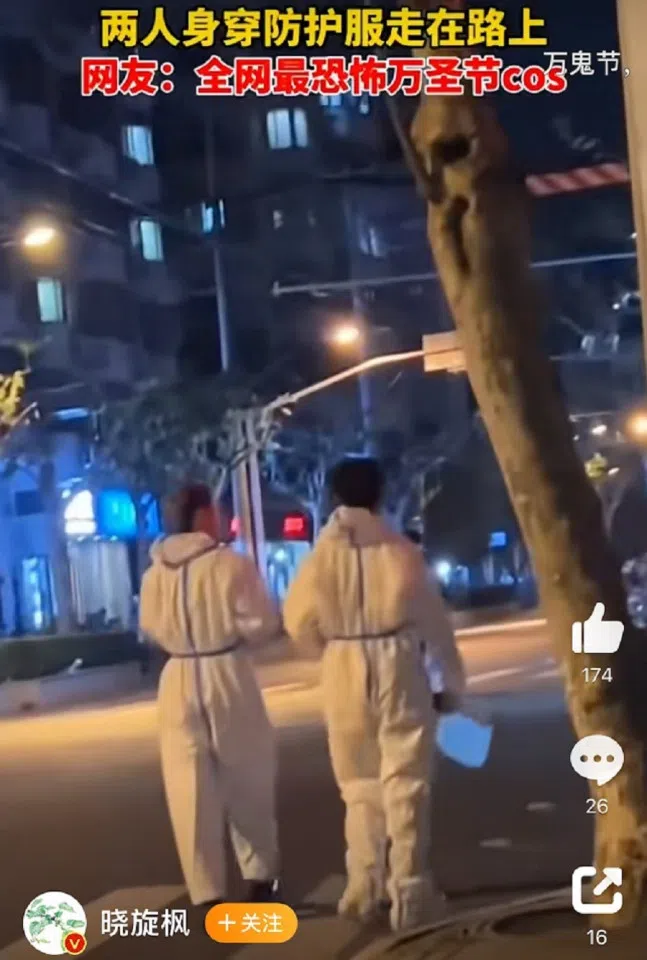
In China today, Halloween is a festival devoid of any religious overtones, and is also divorced from Western tradition. Instead of calling the huge parade over the past few days in Shanghai an invasion of Western culture, one might as well characterise it as a collective venting of emotions suppressed for three years, a rare opportunity for youths to express themselves by dressing up and "acting as ghosts and monsters" as a form of release.
Simply put, the youths who participated in the wild celebration were not trying to sinicise a Western festival, but were "merely looking for a reason to go crazy."
Even "Lu Xun", who encourages youths to "give all you have and shine" (有一分热,发一分光) also had his speech cut off by the police.
Control measures
Shanghai officials did not impose control measures at the outset, instead giving their tacit approval of this mass celebration. But as the scale and impact of the celebrations expanded, they could no longer sit back, and a large group of police officers was dispatched this week for crowd control. Up until the last day of the Halloween celebrations, Shanghai put in place traffic control measures in areas near the celebrations' epicentre, such as closing some metro stations and rerouting public buses.
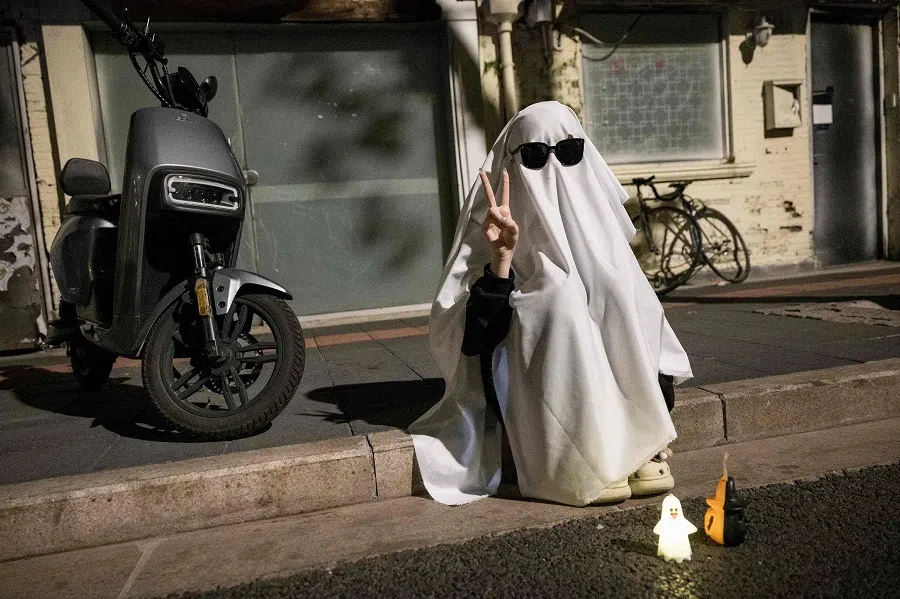
Besides maintaining order, police also stepped in to stop parts of the celebrations, such as detaining some participants dressed as "Big Whites", while a topless "Batman" showing off a chiselled frame was also taken away. Even "Lu Xun", who encourages youths to "give all you have and shine" (有一分热,发一分光) also had his speech cut off by the police. Because of these incidents, some people were worried that this year's Halloween was their "final chance to go wild".
Chinese youths have never been lacking in creativity and execution; after this year's craziness and partial loss of control, how would the officials deal with "Halloween with Chinese characteristics"?
Somewhat surprisingly, amid public controversy, Chinese state media has given a generally positive assessment of the Halloween events. Former Global Times editor Hu Xijin said in a Weibo post that Chinese society in general is more serious, with a strong sense of discipline. But loosening up and having some means of release are intrinsic elements of fostering societal harmony as well. Hu said: "In non-political areas, giving the people - especially the youths - more space without restrictions, is not a problem at all."
The official WeChat channel for Shanghai state media Jiefang Daily also posted a commentary, telling off youths for pandering to foreigners by celebrating foreign festivals, calling their behaviour "wholly unnecessary", while praising them at the same time, saying: "Youths who boldly localised Halloween are in fact a new generation that has more cultural confidence".
Chinese youths have never been lacking in creativity and execution; after this year's craziness and partial loss of control, how would the officials deal with "Halloween with Chinese characteristics"? It is worth watching to see if such celebrations come back in this "mystical city" (魔都, a nickname for Shanghai from a 1924 novel by Shofu Muramatsu) next year.
This article was first published in Lianhe Zaobao as "有中国特色的万圣节".



![[Video] George Yeo: America’s deep pain — and why China won’t colonise](https://cassette.sphdigital.com.sg/image/thinkchina/15083e45d96c12390bdea6af2daf19fd9fcd875aa44a0f92796f34e3dad561cc)
![[Big read] When the Arctic opens, what happens to Singapore?](https://cassette.sphdigital.com.sg/image/thinkchina/da65edebca34645c711c55e83e9877109b3c53847ebb1305573974651df1d13a)
